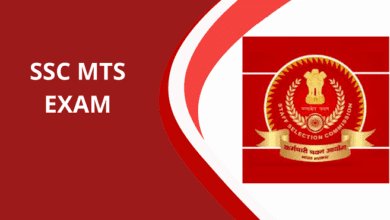Understanding UPSC: The Union Public Service Commission

When people talk about India’s toughest examinations, the UPSC Civil Services Exam (CSE) almost always tops the list. Conducted by the Union Public Service Commission Understanding UPSC: The Union Public Service Commission, this exam is not just a test—it is a gateway to India’s most prestigious positions like IAS (Indian Administrative Service), IPS (Indian Police Service), IFS (Indian Foreign Service), and other Group A & B services.
But understanding UPSC goes far beyond just exam preparation. To truly appreciate its role, we must explore its history, constitutional authority, structure, responsibilities, and the wide variety of exams it conducts.
This guide provides a detailed, human-style explanation of UPSC and its significance in shaping India’s governance and administration.
Personal Details / Quick Insights Table
| Aspect | Details |
|---|---|
| Full Form | Union Public Service Commission (UPSC) |
| Established | 1 October 1926 (as Public Service Commission of India) |
| Constitutional Status | Yes, under Articles 315–323 of the Indian Constitution |
| Headquarters | Dholpur House, Shahjahan Road, New Delhi |
| Functions | Recruitment, conducting exams, advising govt. on services |
| Major Exams Conducted | Civil Services Exam (IAS, IPS, IFS), NDA, CDS, Engineering Services |
| Chairman | Appointed by the President of India |
| Significance | Selects India’s most elite bureaucrats and officers |
| Motto | Satyam Eva Jayate (Truth Alone Triumphs) |
| Current Role | Independent body ensuring merit-based recruitment |
What is UPSC? A Simple Explanation
UPSC (Union Public Service Commission) is India’s central recruiting agency responsible for conducting competitive examinations and selecting candidates for key civil services and defense positions.
Unlike other recruitment boards, UPSC enjoys independent constitutional authority, ensuring fairness, transparency, and merit-based selection.
It is often referred to as the “Gateway to India’s Bureaucracy.”
Also Read: 2025 Board Exam CBSE
History of UPSC
The roots of UPSC go back to British India.
-
1854: The British introduced the Civil Services Examination in London for the Indian Civil Services (ICS).
-
1922: First Civil Services Exam conducted in India.
-
1926: Public Service Commission was set up in India.
-
1950: Post-independence, the Union Public Service Commission was established under the Constitution of India.
This historical journey highlights Understanding UPSC: The Union Public Service Commission evolution from being a colonial institution to a pillar of independent India’s democracy.
Constitutional Role of UPSC
The Constitution of India gives UPSC its authority.
-
Articles 315–323 deal with UPSC’s provisions.
-
It acts as an independent body, not controlled by the government.
-
The President of India appoints its members.
This ensures free, unbiased, and merit-driven recruitment for India’s administrative framework.
Structure and Organization of UPSC
UPSC is headed by a Chairman and several members.
Key Facts:
-
Members are appointed by the President of India.
-
Tenure: Usually 6 years or until the age of 65, whichever comes first.
-
The Commission operates from Dholpur House, New Delhi.
It functions with high autonomy, much like the Election Commission of India, safeguarding its independence.
Major Examinations Conducted by UPSC
UPSC is not limited to just the Civil Services Exam. It conducts multiple national-level exams.
Civil Services Examination (CSE)
-
Most popular exam, recruits for IAS, IPS, IFS, IRS, and Group A/B services.
Other Exams
-
NDA (National Defence Academy)
-
CDS (Combined Defence Services)
-
IES/ESE (Engineering Services Exam)
-
CAPF (Central Armed Police Forces)
-
CMS (Combined Medical Services)
-
Indian Forest Service (IFoS)
This wide range of exams shows UPSC’s central role in building India’s administrative and defense framework.
Also Read: fapello
Understanding UPSC Civil Services Exam (CSE)
This exam is considered one of the toughest in the world due to its breadth, depth, and unpredictability.
Stages of the Exam
-
Preliminary Examination (Prelims) – Objective-type test for screening.
-
Mains Examination – Descriptive papers testing analytical and writing skills.
-
Interview/Personality Test – Evaluates personality, leadership, decision-making.
Services Offered
-
Group A Services: IAS, IPS, IFS, IRS, etc.
-
Group B Services: DANICS, DANIPS, and other allied services.
On average, over 10 lakh candidates apply annually, but only around 700–1000 make it to final selection.
UPSC Eligibility Criteria
To ensure fairness, UPSC has well-defined eligibility conditions.
-
Nationality: Must be Indian for IAS/IPS/IFS.
-
Age Limit: 21–32 years (with relaxations for OBC, SC/ST).
-
Education: Minimum graduation from a recognized university.
-
Attempts Allowed: 6 attempts for General category (more for OBC/SC/ST).
UPSC Syllabus: What You Need to Study
Understanding the UPSC syllabus is key for aspirants.
Prelims Syllabus
-
General Studies (History, Geography, Polity, Economy, Environment).
-
CSAT (Aptitude, Comprehension, Reasoning).
Mains Syllabus
-
Essay Paper.
-
General Studies I–IV (History, Polity, International Relations, Ethics).
-
Optional Subject Papers (Anthropology, Public Administration, Sociology, etc.).
Interview
Tests overall personality, confidence, and suitability for administration.
The Significance of UPSC in India
UPSC is not just about exams—it ensures India has capable administrators to run its vast governance machinery.
-
Merit-Based Recruitment: Prevents nepotism and bias.
-
Nation Building: Recruits officers for policymaking and implementation.
-
Checks & Balances: Independent body that keeps recruitment free from politics.
Without UPSC, India’s bureaucracy would lack credibility and professionalism.
Global Comparison: UPSC vs Other Civil Service Exams
-
China: National Civil Service Exam recruits for Communist Party administration.
-
UK: Civil Service Fast Stream is equivalent to UPSC.
-
USA: Federal Civil Service recruitment is decentralized, unlike UPSC.
This highlights UPSC’s uniqueness as a centralized, constitutional, merit-based system.
Challenges in UPSC System
While UPSC is highly respected, it faces some challenges.
-
Huge competition: Millions apply for limited seats.
-
Stress on rote learning: Criticism of factual memorization.
-
Accessibility issues: Rural students often face resource gaps.
-
Lengthy Process: Takes nearly 1.5–2 years from start to finish.
Despite these, UPSC remains globally admired for fairness and integrity.
Tips for UPSC Aspirants
Drawing from real experience, here are practical suggestions:
-
Understand the syllabus deeply.
-
Focus on conceptual clarity, not just memorization.
-
Read newspapers daily for current affairs.
-
Practice answer writing for mains.
-
Mock interviews help build confidence.
Success in UPSC is not about being a genius—it’s about consistency, patience, and smart strategy.
Future of UPSC
As India advances, UPSC is evolving too:
-
More digitalized exams in the future.
-
Increased focus on analytical and ethical decision-making.
-
Expansion of recruitment for emerging fields like technology, AI, and environment governance.
Frequently Asked Questions (FAQ)
Q1: What is UPSC in simple words?
A: UPSC is India’s central agency that conducts exams like the Civil Services Exam to recruit IAS, IPS, and other top officers.
Q2: How many exams does UPSC conduct?
A: More than 10 major national exams including CSE, NDA, CDS, IFS, and Engineering Services.
Q3: Is UPSC really India’s toughest exam?
A: Yes, due to its vast syllabus, unpredictability, and low selection ratio.
Q4: What is the eligibility for UPSC CSE?
A: Graduate degree, age 21–32, and Indian nationality for core services.
Q5: Why is UPSC important for India?
A: It ensures merit-based recruitment, free from political influence, to run the nation’s administration effectively.
Conclusion
Understanding UPSC: The Union Public Service Commission is essential to grasp India’s governance framework, as it ensures fair recruitment for the nation’s top administrative and defense services.
For aspirants, UPSC is more than just an exam—it’s a journey of self-transformation. For the nation, it is a pillar of democracy, transparency, and meritocracy.




